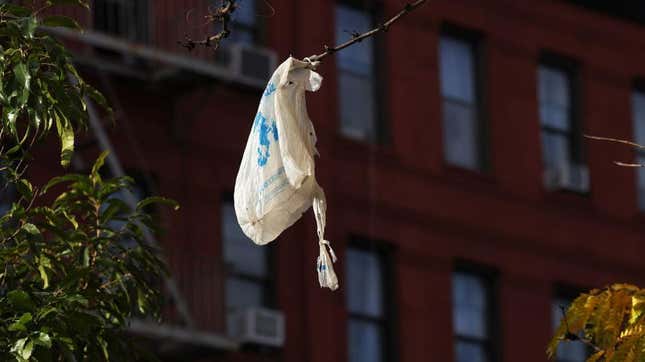
Environmental organization Last Beach Cleanup is suing two retailers for selling un-recyclable plastic bags in California.
In a public statement released this week, Last Beach Cleanup said that retailers Gelson’s Markets and Stater Bros. Markets are illegally selling plastic bags in the state. The organization cited California’s SB270 law, which prohibits the sale of bags made out of plastic film if it cannot be recycled in the state.
“The Last Beach Cleanup’s legal action seeks to protect legitimate recycling efforts, save taxpayer funds spent on cleanups, and protect the global environment from plastic waste and pollution caused by plastic shopping bags and films,” Jan Dell the founder of The Last Beach Cleanup said in a statement.
The environmental organization alleges that the retailers have misled their customers about the ability to recycle the plastic film bags. “Consumers across the U.S. are deceived by instructions to ‘Return the plastic bag to a participating store for recycling or ‘Store Dropoff’ and sent on a wild goose chase with no benefit,” Dell said in the statement.
Just last year, California banned the use of the chasing arrows recycling symbol on items that don’t meet the state’s recycling standards. The ban went into effect this January, so retailers like Gelson’s Markets and Stater Brothers are breaking the law if they continue to use the arrows on shopping bags.
This lawsuit comes after California’s attorney general launched an investigation on petrochemical companies and their role in worsening the plastic pollution crisis around the world, Reuters reported.
For years, plastic and fossil fuel companies have pushed the responsibility of recycling onto the consumer, despite the fact that large companies contribute the most to our global waste. Some soft drink companies have announced recycling pledges, but analysis from environmental groups have found that many of these pledges wouldn’t really make a dent. This has prompted policymakers and environmental groups to investigate recycling programs and to pursue legal action against these large polluters.
Lsst month, sustainability consulting firm Eunomia was commissioned by ocean conservation nonprofit Oceana to analyze recycling pledges from several large companies. The group found that, despite the intent to reduce plastic waste, millions of bottles will still end up in waterways as a result of soft drink sales.